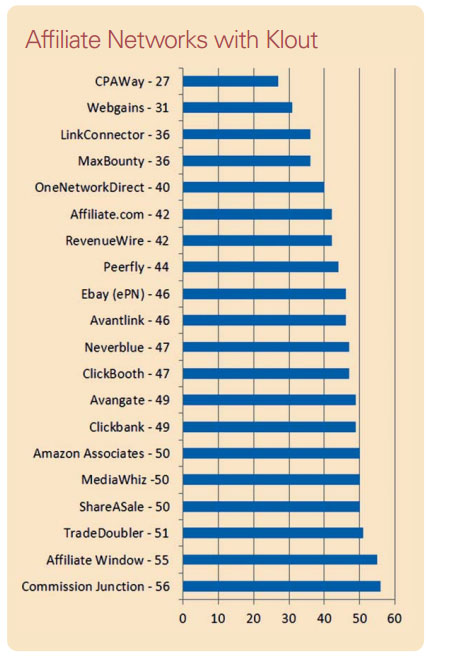The Next Ten Years of Affiliate Marketing

Performance marketing has had its up and downs - for both merchants and affiliates alike - but is there light at the end of this virtual tunnel? Will there even be a "next 10 years" of performance marketing?
There are those ongoing taxation troubles to consider of course, not to mention the challenge of consumers' increasing digital shopping sophistication to deal with (perpetual bargain hunting and "showrooming" being the norm today). Many fear that these issues could prevent, or at least limit, performance-based promotions from reaching their true potential, but is it enough to end the practice altogether?
"I don't think there's a realistic chance that affiliate marketing will be gone by 2024," said Tom Demers, co-founder and managing partner of search marketing consultancy Measured SEM. "The fundamental circumstances that make affiliate marketing possible are that there are talented marketers with an audience who don't have products to sell (or enough of a way to monetize their skills and influence), and that there are companies with products that have healthy margins who want more leads and sales. Neither of those realities is likely to change."
This is good news for both affiliates and merchants alike and should inspire confidence that the practice will be viable in the future. But what will the affiliate marketing landscape look like in the next 10 years and how should savvy brands prepare?
The Merchant Outlook
One of the main reasons that affiliate marketing will stand the test of time is because quite a bit of growth potential remains.
Liane Dietrich, chief operating officer of Rakuten Marketing, suggests that "A lot of the growth will come through global channels because the pay-for-performance model is ideally suited for companies that want to expand their reach into new markets," continuing, "Affiliate marketing enables them to test the waters in a new geography without incurring significant overhead by hiring additional full-time staff and renting office space until the market has been proven."
There are still other reasons that affiliate marketing will stand the test of time. Even with a more sophisticated affiliate base and immense potential remaining, merchants will also benefit in the future from deep integrations with other, complementary marketing channels such as search, display, retargeting and product listing feeds. That will greatly benefit all parties - merchants and affiliates - involved.
"By bringing these elements together, advertisers will be able to better understand campaign performance across their various channels," said Dietrich, suggesting that affiliate marketing will likely become part of an integrated digital marketing services offering. "This will result in more effective online marketing strategies, better allocation of budgets and more cohesive teams."
The future isn't completely rosy however - particularly for the numerous affiliate networks in operation today.
"It's no secret that there's been a Darwinism of sorts when it comes to the evolution of affiliate marketing," said Dietrich. She and many others believe that by 2024 there will be an emergence of only a handful of networks driving the industry. These networks will be those that are global in their focus, put affiliates through a rigorous and thorough vetting process, dedicate resources to improve their technology and provide more personalized services to help drive results.
Even with the looming advancements to the practice itself, success is still reliant on the performance marketers (the affiliates) themselves.
DON'T MISS: 4 Merchant- Friendly Affiliate Networks
The Affiliate Outlook
Few argue that the actual practice of affiliate marketing will be the same in the future. The approaches, tactics and techniques employed by performance marketers to drive users to merchant websites (social, search, email and advertising) however, will undoubtedly be different - as will the style of competition.
"As Google cracks down on affiliates while moving into a lot of spaces as a player and content creator themselves (paying for content creators via YouTube, making notable acquisitions in travel, car insurance, local reviews and several others) SEO and organic traffic is likely to continue to shrink and shift as an affiliate opportunity," said Demers. "The underlying model of driving leads and sales for a percentage of revenue won't change, but the methods used by affiliates will."
Fortunately, growing channels like mobile, Demers suggests, will become even more prolific and easier to monetize as time goes on. The affiliate marketers that are starting to see increased revenue now, and will likely in 2024 as well, are those that are actively developing custom content experiences in the form of mobile applications. The good news is that there is data readily available to inform affiliates about the most potentially rewarding mobile app opportunities. Application intelligence platform Distimo, for example, recently unveiled a new resource that provides download and revenue trends for any application in the Apple App store, Google Play and the Amazon Appstore. Armed with that type of information, the affiliate outlook seems bright and it may only get brighter.
Today's consumers expect information presented to them to be acceptable to their digital pallet - accessible (mobile), information rich and meaningful. But it will likely also come down to who's providing the most innovative, unique and interesting technology experience.
It wasn't that long ago that a strategically placed sponsored link and just a smattering of content on a social network could drive visits (and revenue), but today's buyers are more critical of the experience they receive. It is the responsibility of affiliates to pursue the tactics, techniques and channels (like mobile) in order to compete in the future.
According to Forrester, the affiliate industry is on track to reach $4.5 billion by 2016 and many, despite the plethora of well-documented problems, don't expect it to slow by 2024 (or at any point in between). In essence, there's still significant potential for growth. The affiliate marketing landscape will change though - the only question is how. By thinking strategically about the opportunities, developing experiences for consumers that are in demand, and perpetually seeking out new markets and opportunities, the outlook for the performance industry is bright. Affiliate Networks with Klout
Looking for a guarantee that the affiliate network(s) you have selected will be around in 10 years? Good luck - acquisitions and closures happen regularly in the performance marketing space. There are, however, some reliable indicators that the networks currently aligned with your brand will be around when it counts. Take for example Klout score, a measurement of "influence" of individuals and brands. Here's how 20 of the largest networks in the world stack up:
EDITORS NOTE: Keep in mind that Klout scores change frequently and by the time you've read this may be outdated. Also, some networks manage multiple social media profiles which, while diminishing the overall impact of Klout (and clout) also makes it difficult to know the official account. Rakuten Linkshare (mentioned above) for example manages multiple Twitter accounts. At the time of writing the network had a Klout score of 59.


Subscribe to Our Newsletter!
Latest in Affiliate Marketing







